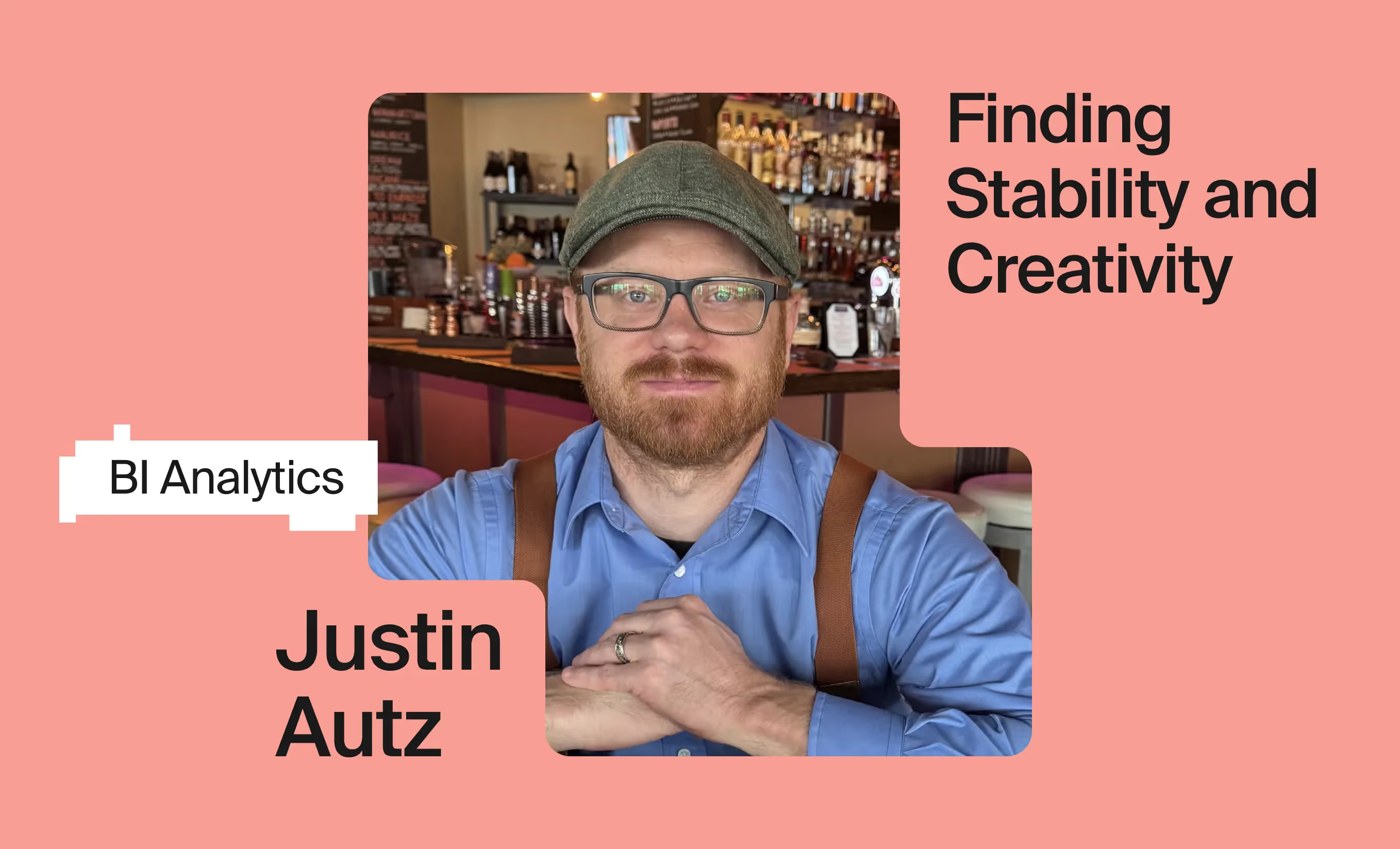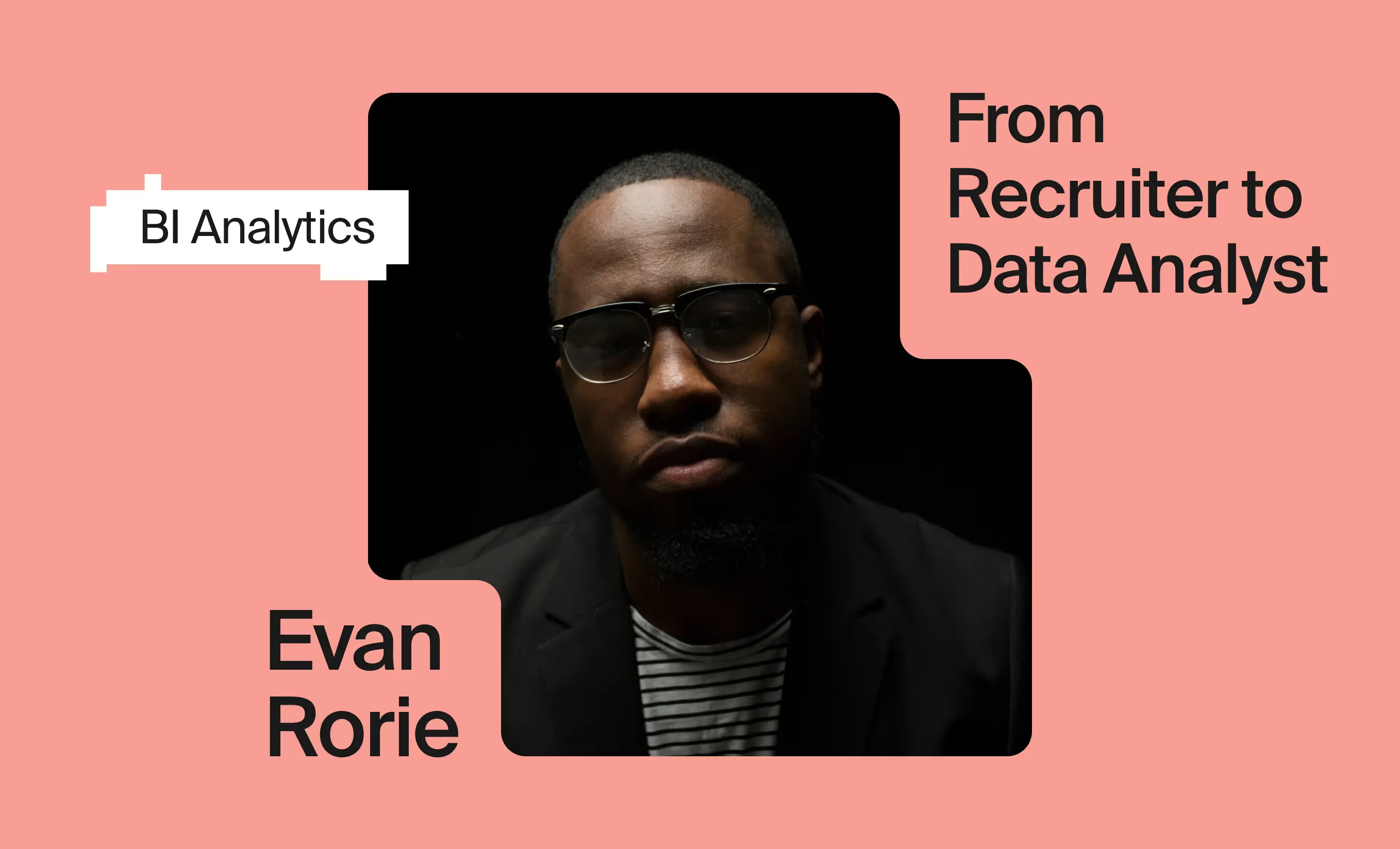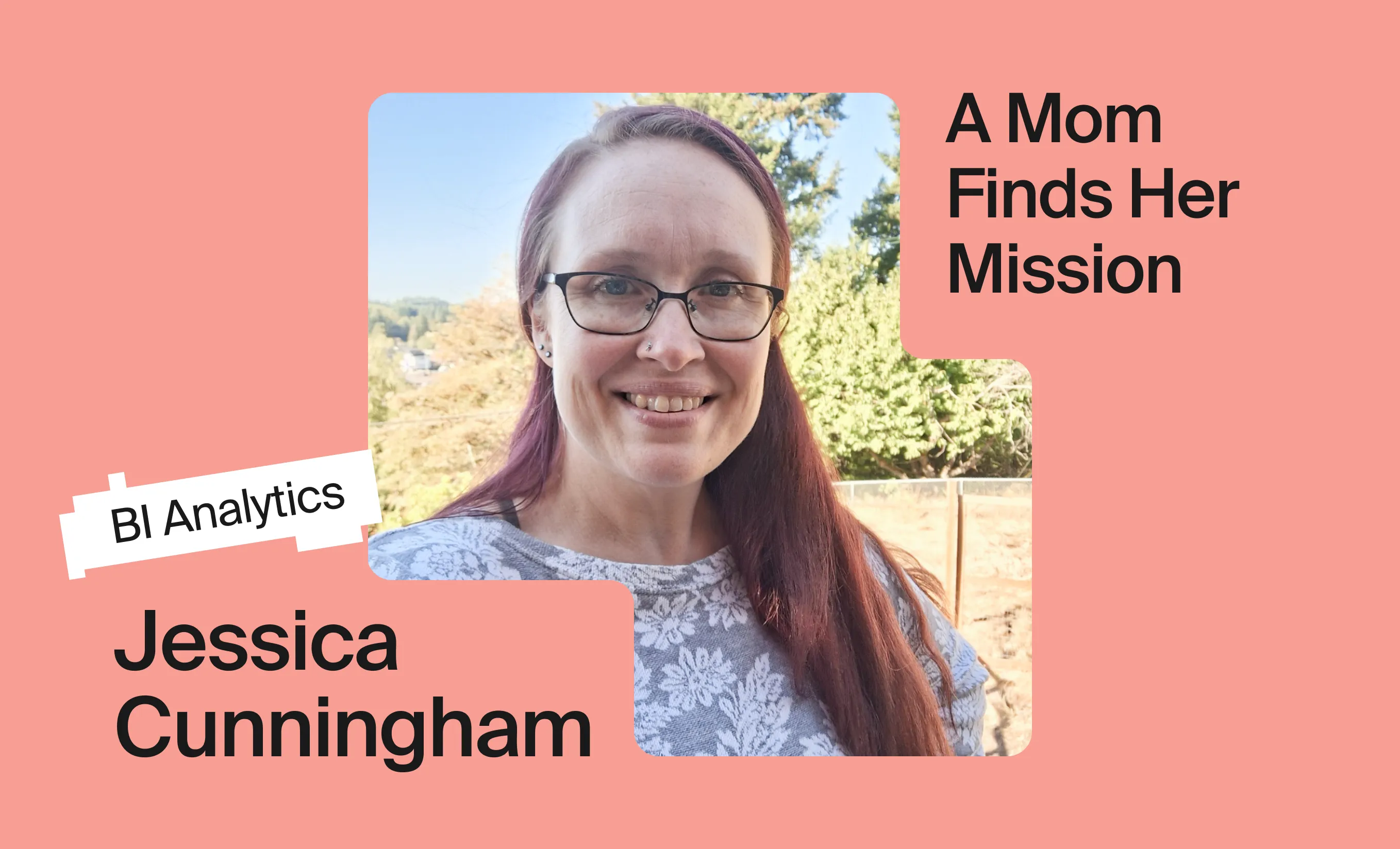By the time you finish your bachelor’s degree, roughly 80% of your life will have orbited institutions of education. So when society expects you to commit to a career, another institution, right after you get your diploma, it’s understandable that you’d stop and ask, “But why though?”
Add on a pandemic and a specialization that burns you out, and that skepticism only increases. And Joshua Norfolk knows what that’s like. He graduated into the pandemic with a major in physics but no interest in pursuing the field. Getting the degree had drained him, the world was topsy-turvy, and there was life he still wanted to live. So he chose exploration.
That didn’t mean he had to forgo a great career, though. After he lived his twenties to their fullest, TripleTen helped him recommit to tech and land a well-paid, growing career. Here’s how.
Gaining a degree but losing interest
Joshua had followed the advice most of us got about higher education. He’d gotten into a good school. He’d majored in something productive. And it just didn’t add up.
I went to college right out of high school and got my bachelor's in physics. And then I wasn't quite sure what I wanted to do with that. Joshua Norfolk, TripleTen grad
Not just that, but the intensive course of study had burned him out. So when the pandemic hit, he just did what he could. Starting out, he drove a van for eight weeks, setting up covid testing sites across the United States. According to Joshua, “It paid well enough that I was able to live on my own and climb and such for the remainder of that 12 months.”
.avif)
He had a passion for the outdoors, and he decided to see where that would take him. After all, physics wasn’t calling him, and he was still in a time of life with the freedom to pursue his curiosity. He lived out of his car and climbed and hiked all across the US. It taught him something valuable.
I took my year to achieve a lot of my personal goals in terms of climbing and mountaineering. And so by the time I was finishing up with that and realizing that I needed to get a job beyond the covid van job, I just knew that I didn't want to be outside for work. I just wanted to keep it as my fun time. Joshua Norfolk, TripleTen grad
He’d lived the wandering, explorative lifestyle. Now it was time for something else. But what? Out of practicality, he came home and took a job at a grocery store. Still reeling from the burnout, he appreciated the directness of what he did at that job.
“It was actually nice just working a job where I didn't have to use my brain whatsoever,” he said. But he found himself getting complacent, and that was a warning sign for him: “I realized it was time to leave when I started getting a little too comfortable with it.”
He’d studied Python as part of his physics degree, so he thought data science would be the way to go, as it's one of the key languages used in that field. He enrolled in supplementary classes, and they helped somewhat. He even made it to the final interview round for a job that he was sure he was going to land.
It fell through.
Helped along by a frank conversation with the recruiter, this led to a realization. “When I didn't get that job, I realized maybe I needed some help,” he said. “I should just double down and actually study data science properly.”
Doubling down on data science
Joshua decided to get back to learning — for real this time. He’d been seeing ads from TripleTen, and they got him curious. The money-back guarantee convinced him the bootcamp was serious, but what really intrigued him was the project-based structure. After a conversation with one of our advisors, he enrolled in the Data Science program.
From the very beginning, it was the tech education he was looking for.
Even with the first project in TripleTen, it felt a lot more satisfying than what I had done. Joshua Norfolk, TripleTen grad
There were high expectations for him, and this was something that helped him thrive. See, he was going to have to really learn the data science skills, and the projects were going to be the ultimate tests. After all, he wasn’t learning just to passively absorb the information. He was here to gain the skills and then put them into practice in situations he’d encounter in real life.
But along with those high expectations, he got matching dedication from TripleTen experts in the form of targeted feedback. This is something he still appreciates. “Having somebody who knows a lot more than you do looking at your actual work specifically as an individual and telling you what you did wrong and telling you what you did well on is just so useful,” he said.
This focused, directed assistance was especially useful because he was simultaneously working while he was studying, and he wanted to make the most of the time he could dedicate to his studies. He would dive in full-time on his free days, and this commitment paid off when he took the opportunity to join an externship, during which he joined a team tackling a real-life tech task.
Specifically, he and his teammates used the skills they gained at TripleTen to develop a large language model to handle typical HR questions. To power it, they trained the model on HR questions and answers, and the project was unlike anything he’d encountered before. It was a major challenge for Joshua and his team, but that was exactly why he appreciated it. “The difficulty makes me look back on it so fondly because it was so dramatically different from what we had worked on in the coursework,” he said.
He gained the expertise at TripleTen, proved it and locked it in with his externship, and now he was ready for the next step: landing the job.
From annotator to lead in two years
Once Joshua finished his studies, he was all-in on the career search. The intention was clear to him: this was what the whole thing had been about in the first place. “If you chose not to do a good job on the career search portion, then everything else, all of the coursework, would have been in vain,” he said.
So he committed. Through advice from his career coach, he saw that it might be worthwhile to lock in the programming know-how he gained both as part of his degree and at TripleTen. “The career search actually really motivated me to brush up on the more foundational coding skills, which paid off,” he said.
And yes, he did mention the payoff. Thanks to his new know-how, he aced an entrance assessment for a platform that was looking for data annotators. He was only in that position for a few months, though, as they saw his potential and sent him one more test for a more senior role. It was no problem for him: “I did well on that and got invited to be on the operations team. And so I did that for a year, which was like a combination of project management and data analysis.”
.avif)
His career didn’t stop growing there. After that year, he caught the attention of Handshake, a career platform catered to Gen Z. No application or anything — they reached out first. He had a few conversations up the chain of command and explained his expertise, covering everything from what he gained at TripleTen to the human data experience he’d gained. It convinced them, and now he’s a Quality Lead at Handshake, in which role he’s now managing projects from 5,000 data annotators. It’s the role he’d been looking for. “I use my brain a lot more now,” he said.
He has the autonomy to figure out how to accomplish his goals, and the finances of the new role aren’t bad, either.
I make enough that I can actually live and save and whatnot as opposed to any of my past jobs. Joshua Norfolk, TripleTen grad
Looking back on his journey, he’s grateful that he didn’t have to choose between adventure and a thriving career and that he got to a great place on his own terms: “I'm really proud that I was able to gain some independence and then transition into a really solid job without having to get a master's or PhD or anything.”
Follow Joshua’s lead



.avif)












